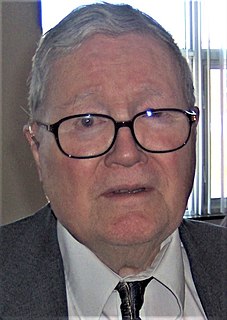A Quote by Jordan Peterson
There's no doubt that inequality destabilizes societies. I think the social science evidence on that front is crystal clear.
Related Quotes
There have always been two theories about inequality. One is that it reflects just deserts. The other is that there are large elements of exploitation and inequality of opportunities. The evidence is overwhelmingly that the increase in inequality is associated with those negative factors. If it were all social contribution, then when the top did better, they would be contributing to everybody's well-being. That trickle-down hasn't happened. We've seen median income, people in the middle, actually worse off than they were 25 years ago.
What should we think of someone who never admits error, never entertains doubt but adheres unflinchingly to the same ideas all his life, regardless of new evidence? Doubt and skepticism are signs of rationality. When we are too certain of our opinions, we run the risk of ignoring any evidence that conflicts with our views. It is doubt that shows we are still thinking, still willing to reexamine hardened beliefs when confronted with new facts and new evidence.
The social science on the impact of desegregation is clear. Researchers have consistently found that students in integrated schools - irrespective of ethnicity, race, or social class - are more likely to make academic gains in mathematics, reading, and often science than they are in segregated ones.
While much of modern behavioral and social science treats individuals as autonomous agents, it is absolutely clear that the way we think and act is enormously influenced by the culture in which we live. It also is clear that the major elements of modern culture-science, technology, law, music, and religion-have evolved over time in a quite concrete sense of the term. Mesoudi makes these arguments very well and his book is a very good read.
No doubt exists that rent seeking in general leads to serious inefficiencies in this direct sense, but its indirect damage is even worse. Drawing the bulk of intelligent and energetic people in society into activity that has no social product, or may have a negative social product, is more important in explaining the stagnation of these societies than the direct social cost of the rent seeking.
It is time to create new social science departments that reflect the breadth and complexity of the problems we face as well as the novelty of 21st-century science. These would include departments of biosocial science, network science, neuroeconomics, behavioral genetics and computational social science.






































